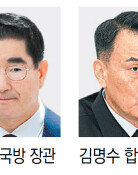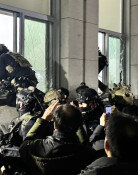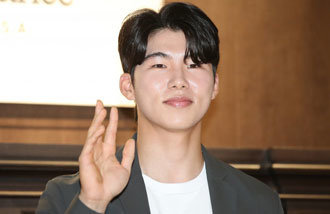Go match between champion and computer
Go match between champion and computer
Posted January. 29, 2016 07:14,
Updated January. 29, 2016 07:23
If Go is an Eastern board game, a chess is a Western one. Go has 361 points where the first Go stone can be located. The number of cases of putting the first Go stone by both sides is up to 129,960. However, the number of cases for chess is only 400. It is said that the number of cases in a single Go match is almost 700 digits based on a simple mathematical method. There has been no same Go match in the 200-year recorded history of the game and it would have been in the past.
A long time ago, a computer beat humans in chess. In 1997, IBM’s “Deep Blue” won Garry Kasparov, a Russian chess champion. It had been in 51 years since the creation of the first computer named ENIAC. Kasparov was then regarded as a chess genius in the 1,500-year-old chess history. Though he tied to the upgraded “Deep Junior” in a rematch in 2003, he did not have a chance to win the computer and retired in 2005.
In a Go match, a professional Go player puts four stones in advance as bonus points in a match with a computer. Cho Hun-hyun (9th dan) said in his book published last year titled “How a master thinks,” “As the four Go handicap stones show a professional Go player’s creativity and spirit, I’m skeptical that a computer can mimic this.” AlphaGo, Google’s artificial intelligence program, won European Go champion Fan Hui. However, European Go players are not as good as those in Korea, China and Japan.
Korea has been the best among the three East Asian countries since Cho’s claiming of the Ing Cup Go Championship in 1989. Following Lee Chang-ho (ninth dan), Lee Se-dol (ninth dan) has been the best for a decade. AlphaGo challenged Lee Se-dol. A match between the world’s best Go player and a computer will be held in Seoul for the first time in March. The Go community believes that the computer cannot beat Lee even if it claims that it is much better now than the past, and Go handicaps with two or three stones would be appropriate. Nevertheless, it is too early to make judgment in advance because it is a match with a computer that does not feel tired and can easily handle complicated computation.
송평인기자 pisong@donga.com







